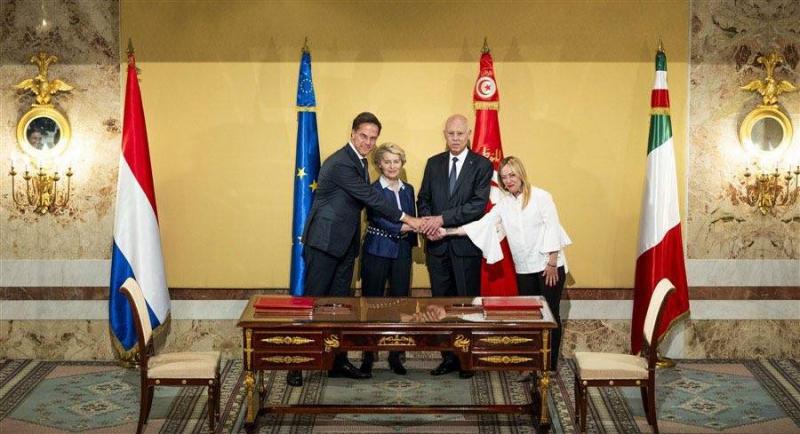Tunisia and the European Union signed a strategic partnership agreement today, Sunday, which includes combating human traffickers and tightening border controls, amid a sharp increase in boat journeys from the North African country to Europe. Dutch Prime Minister Mark Rutte tweeted that the partnership includes agreements to disrupt the business model of human traffickers and smugglers, enhance border surveillance, improve registration and return procedures, and all essential measures to strengthen efforts to stop irregular migration.
European Commission President Ursula von der Leyen stated that the EU will allocate €100 million to Tunisia to assist it in combating illegal immigration. The agreement is expected to enhance macroeconomic stability, trade, investment, the transition to green energy, and legal migration. Italian Prime Minister Giorgia Meloni expressed her happiness with this step, calling it "another important step towards establishing a true partnership between Tunisia and the EU, enabling it to address the migration crisis in a comprehensive manner."
Meloni, whose country has experienced a sharp increase in the number of migrant boats arriving, revealed that an international conference regarding the migration crisis will be held in Rome next Sunday, attended by several heads of state, including Tunisian President Kais Saied. Official data shows that about 75,000 migrants have reached Italy by boat as of July 14, compared to 31,920 migrants during the same period last year. More than half of these migrants left from Tunisia, surpassing Libya as the main departure point to Europe.
Saied mentioned this month that his country will not accept becoming a border guard for European countries. The agreement comes after weeks of negotiations, with Europe pledging substantial assistance to Tunisia amounting to €1 billion ($1.12 billion) to support its struggling economy, save its public finances, and enable it to tackle the migration crisis. Most of this funding will depend on the implementation of economic reforms. Thousands of undocumented African migrants have flocked to the city of Sfax in recent months, seeking to cross into Europe aboard traffickers' boats, representing an unprecedented migration crisis for Tunisia.




